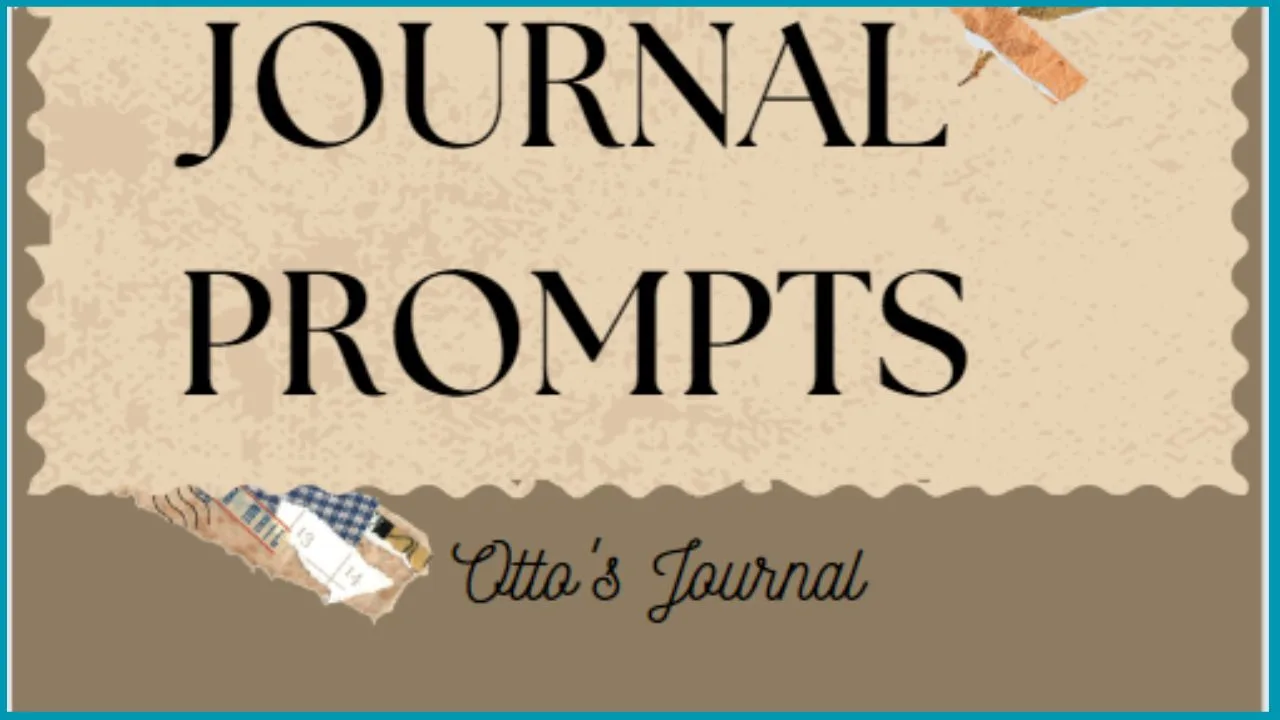Mental health journaling can be a powerful tool for those struggling with mental health issues. Writing down thoughts and emotions can help individuals better understand and process their feelings, leading to improved mental health and well-being. However, getting started with journaling can be difficult, especially if one is unsure of what to write about.
Fortunately, there are many journaling ideas that can help individuals get started on their mental health journaling journey. These ideas can range from writing about daily experiences and emotions to exploring past traumas and working through difficult emotions. Prompts and exercises can be used to guide journaling sessions and help individuals delve deeper into their thoughts and feelings. By incorporating these ideas into their journaling practice, individuals can reap the benefits of mental health journaling and improve their overall well-being.
How to Start a Mental Health Journal

Journaling is a powerful tool that can help individuals reflect on their thoughts, emotions, and experiences. It can also serve as a safe space for individuals to express themselves without fear of judgment. Establishing a journaling routine can be a new habit that can help individuals improve their mental health. In this section, we will discuss how to start a mental health journal.
Choosing Your Journal and Writing Tools
The first step in starting a mental health journal is to choose a journal and writing tools that work best for you. Some individuals prefer to use a pen and notebook, while others may prefer to use a digital journaling app. Reflective visual journaling is also an option for those who enjoy expressing themselves through art.
Establishing a Journaling Routine
Establishing a routine is essential when starting a mental health journal. It is recommended to set aside time each day to journal, preferably at the same time each day. This can help individuals make journaling a daily routine and a part of their daily self-care practice.
Creating a Safe Space for Journaling
Creating a safe space for journaling is crucial. It is important to establish boundaries and ensure that the journaling space is free of distractions. It is also important to remember that journaling is a personal practice, and individuals should not feel pressured to share their journal with anyone else.
In summary, starting a mental health journal can be a powerful tool for self-reflection and self-care. By choosing a journal and writing tools that work best for you, establishing a journaling routine, and creating a safe space for journaling, individuals can make journaling a part of their daily routine and improve their mental health.
45 Mental Health Journaling Ideas

Journaling is a powerful tool for improving one’s mental health. It helps in reflecting on one’s thoughts, experiences, and emotions. Here are 45 mental health journaling ideas that can help in promoting self-reflection, self-compassion, gratitude, and personal growth.
- Write about a difficult emotion you experienced recently and how you dealt with it.
- List three things you are grateful for today.
- Write about a challenge you overcame and how it made you stronger.
- Reflect on a recent accomplishment and how it made you feel.
- Write about a goal you have for the future and the steps you plan to take to achieve it.
- List ten things you love about yourself.
- Write about a time when you felt proud of yourself.
- Reflect on a mistake you made and what you learned from it.
- Write about a person who inspires you and why.
- List five things you can do to take care of yourself.
- Write about a time when you felt overwhelmed and how you coped with it.
- Reflect on a relationship that is important to you and what it means to you.
- Write about a time when you felt happy and why.
- List three things you can do to show yourself compassion.
- Write about a time when you felt confident and why.
- Reflect on a time when you felt anxious and how you managed it.
- Write about a time when you felt loved and supported.
- List three things you can do to practice self-care.
- Write about a time when you felt motivated and why.
- Reflect on a time when you felt angry and how you expressed it.
- Write about a time when you felt peaceful and why.
- List five things you are proud of.
- Write about a time when you felt inspired and why.
- Reflect on a time when you felt sad and how you coped with it.
- Write about a time when you felt grateful and why.
- List three things you can do to show gratitude.
- Write about a time when you felt connected to someone else.
- Reflect on a time when you felt lost and how you found your way.
- Write about a time when you felt content and why.
- List three things you can do to improve your mental health.
- Write about a time when you felt confident in your abilities.
- Reflect on a time when you felt jealous and how you managed it.
- Write about a time when you felt empowered and why.
- List three things you can do to improve your self-esteem.
- Write about a time when you felt hopeful and why.
- Reflect on a time when you felt rejected and how you coped with it.
- Write about a time when you felt loved by someone else.
- List three things you can do to practice self-compassion.
- Write about a time when you felt proud of someone else.
- Reflect on a time when you felt like giving up and how you kept going.
- Write about a time when you felt like you made a positive impact on someone else.
- List three things you can do to practice mindfulness.
- Write about a time when you felt like you learned something new.
- Reflect on a time when you felt like you were growing as a person.
- Write about a time when you felt like you were making progress towards a goal.
Benefits of Mental Health Journaling

Mental health journaling is a powerful tool for improving emotional and physical well-being. It can be used to reduce stress and anxiety, increase emotional processing and awareness, promote mindfulness and self-care, provide therapeutic effects and professional support, and improve physical health and resilience.
Stress and Anxiety Reduction
Journaling can be an effective way to reduce stress and anxiety. By writing down thoughts and feelings, individuals can gain insight into their emotions and identify triggers that cause stress and anxiety. This can help them develop coping strategies and find peace in daily life.
Emotional Processing and Awareness
Journaling can also help individuals process and become more aware of their emotions. By writing about their experiences and feelings, individuals can gain a deeper understanding of their emotional health and develop strategies for managing difficult emotions. This can also help individuals identify patterns in their emotions and develop more effective coping strategies.
Promoting Mindfulness and Self-Care
Journaling can be a valuable tool for promoting mindfulness and self-care. By taking time to reflect on their thoughts and feelings, individuals can become more aware of their needs and prioritize self-care activities. This can help individuals develop a routine that supports their emotional and physical well-being.
Therapeutic Effects and Professional Support
Journaling can have therapeutic effects and provide professional support. By working with a mental health professional, individuals can develop a journaling practice that supports their healing and growth. Mental health professionals can also provide guidance and support for individuals working through difficult emotions and experiences.
Physical Health and Resilience
Journaling can also improve physical health and resilience. By reducing stress and anxiety, individuals can improve their immune system function, lower blood pressure, and improve sleep quality. This can help individuals develop greater physical resilience and strength.
Mental health journaling is a valuable tool for improving emotional and physical well-being. By reducing stress and anxiety, increasing emotional processing and awareness, promoting mindfulness and self-care, providing therapeutic effects and professional support, and improving physical health and resilience, individuals can develop greater strength and resilience in body and mind.
Frequently Asked Questions

What are some therapeutic journal prompts for self-discovery?
Journaling can be a powerful tool for self-discovery and emotional wellness. Some journal prompts that can help with self-discovery include writing about your goals, values, fears, and strengths. You can also write about your past experiences and how they have shaped you, as well as your hopes and dreams for the future. Other prompts might include exploring your relationships, your spirituality, and your sense of purpose.
How can journaling help with anxiety?
Journaling can be an effective way to manage anxiety by helping you to identify and manage your thoughts and emotions. Writing down your worries and fears can help to reduce their intensity and give you a sense of control over them. Journaling can also help you to identify patterns in your thoughts and behaviors that may be contributing to your anxiety. By tracking your moods and emotions over time, you can learn to recognize triggers and develop coping strategies.
What are some effective mental health journaling strategies?
Effective mental health journaling strategies include setting aside time each day to write, using prompts to guide your writing, and focusing on your thoughts and emotions. It can also be helpful to write in a private space where you feel comfortable and safe. Another strategy is to use your journal to track your progress over time, setting goals and monitoring your progress towards them.
How can gratitude journaling benefit mental health?
Gratitude journaling can benefit mental health by helping to cultivate positive emotions and reduce negative ones. By focusing on the things you are grateful for, you can shift your attention away from negative thoughts and emotions. Gratitude journaling can also help to improve your relationships and increase your sense of well-being.
What are some creative journal prompts for mental health?
Creative journal prompts for mental health might include writing a letter to your future self, creating a collage or drawing to express your emotions, or writing a story or poem about a difficult experience. Other prompts might include exploring your dreams, writing about a place that makes you feel calm and relaxed, or creating a list of things that make you happy.
How can a mental health journal template be helpful for tracking progress?
A mental health journal template can be helpful for tracking progress by providing a structure for your writing and helping you to stay organized. A template might include sections for tracking your moods, setting goals, and reflecting on your progress over time. By using a template, you can also ensure that you are covering all the important aspects of your mental health journey.
What should I write in my mental health journal?
What you write in your mental health journal will depend on your goals and needs. Some people might choose to write about their thoughts and emotions, while others might focus on their behaviors and habits. It can also be helpful to write about your relationships, your spirituality, and your sense of purpose. The important thing is to be honest with yourself and to use your journal as a tool for self-discovery and emotional wellness.
What are the journal prompts for gratitude for mental health?
Journal prompts for gratitude might include writing about the people in your life who have supported you, listing the things you are grateful for, or reflecting on a difficult experience and finding something positive in it. Other prompts might include writing a thank-you note to someone who has helped you, or creating a gratitude jar where you can collect notes about the things you are thankful for.
How to do anxiety journaling?
Anxiety journaling involves writing down your worries and fears, as well as your thoughts and emotions. It can be helpful to use prompts to guide your writing, such as “What am I afraid of?” or “What is the worst-case scenario?” You can also use your journal to track your moods and emotions over time, and to develop coping strategies for managing your anxiety. It’s important to be honest with yourself and to use your journal as a tool for self-discovery and emotional wellness.




